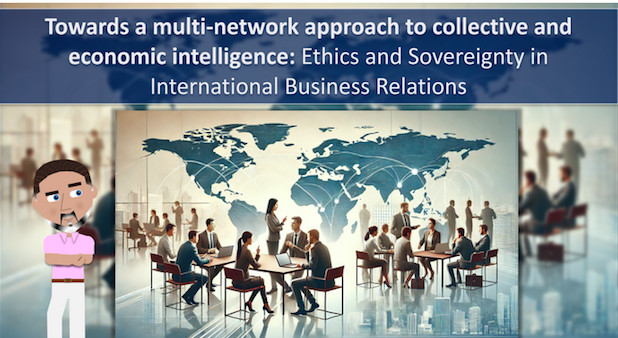Globalization has reshaped business ecosystems, making international networks indispensable. Patrice Schoch, a researcher and lecturer specializing in strategic intelligence and entrepreneurship, explores in his article the benefits of a multi-network approach integrating Collective Intelligence (CI) and Economic Intelligence (EI).

CI mobilizes knowledge for innovation, while EI analyzes strategic information for informed decision-making. Together, they optimize international business relationships, enabling rapid adaptation to market changes. However, these networks pose significant challenges, particularly regarding ethics and economic sovereignty. Interactions must remain transparent, respecting local and international standards. The sovereignty of partners must be preserved, avoiding disproportionate domination.
For a successful multi-network approach, several key principles must be respected
- Transparency and trust: Clear information exchanges and protection of sensitive data.
- Respect for ethical standards: Compliance with local and international laws, respect for human rights.
- Equity in the value chain: Fair distribution of benefits and burdens.
- Sovereignty and autonomy: Maintenance of strategic control by each partner.
Companies must structure their international networks by :
- Clear partnership agreements: Defined roles and conflict resolution mechanisms.
- Secure collaboration platforms: Cutting-edge technologies for data protection.
- Shared strategic intelligence: Anticipation of market trends and identification of opportunities.
- Strengthening local capacities: Development of local skills and infrastructures to minimize dependencies.
Adopting a multi-network approach to collective and economic intelligence is crucial for companies wishing to navigate a globalized environment while respecting ethical and sovereignty principles.
By investing in local capacities and using strategic intelligence tools, they can ensure sustainable and equitable growth for all partners.
By investing in local capacities and using strategic intelligence tools, they can ensure sustainable and equitable growth for all partners.

 Accueil
Accueil



